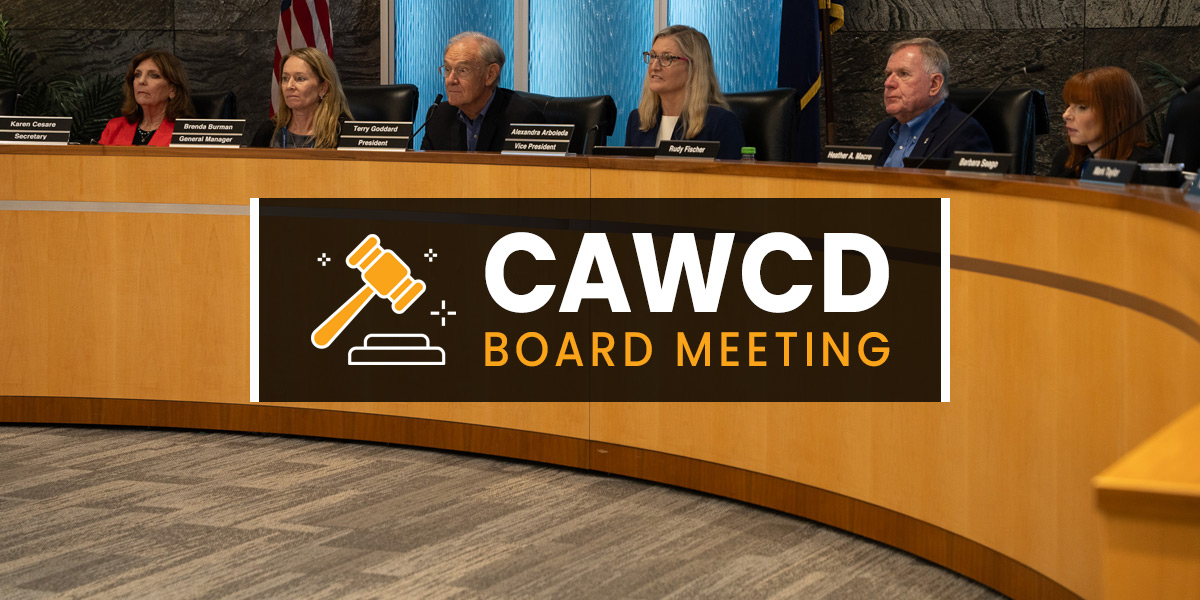The Central Arizona Water Conservation District Board (CAWCD) met in Tucson on Thursday, Oct. 9. The meeting kicked off with a Central and Southern Arizona economic outlook presentation given by George Hammond, PhD, director, Economic and Business Research Center at the University of Arizona’s Eller College of Management.
Following a report from the CAGRD and Underground Storage Committee, the Board approved an agreement between the United States and CAWCD providing for the purchase and sale of 4,500 long-term storage credits (LTSC) in the Tucson Active Management Area (AMA). These credits were created by the storage of effluent in the Lower Santa Cruz Managed Recharge
Project. The total cost of the acquisition is $1.8 million or $400/LTSC.
One of CAP’s Strategic Plan Key Result Areas is Stewardship and Sustainability: Serving as proactive leaders in sustainability and responsible, collaborative stewards of CAP’s Colorado River supply. The Board received an update that included an overview of wildlife crossings, volunteer efforts, rescues and watering stations, in addition to CAP’s catfish and carp stocking program.
In addition, the Board heard presentations on a potential System Improvement Fee for CAWCD wheeling contracts and current Colorado River conditions.
The CAWCD Board of Directors is a popularly elected 15-member board. Ten members are from Maricopa County, four from Pima County and one from Pinal County. Members serve six-year, unpaid terms. The board typically meets publicly the first Thursday of each month to establish policy and set rates and taxes for CAP. Meetings are open to the public – in person and via livestream.
For additional details on the Oct. 9, 2025 board meeting, take a look at the agenda. Board minutes and video will be posted here, as well.
KRA: Public Trust, Partnerships & Leadership
Earning and preserving public trust, building and maintaining partnerships, and providing informed water management leadership


